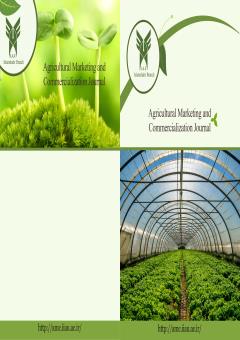The Impact of Block Ownership on Cash Holdings in Companies Listed on the Tehran Stock Exchange
الموضوعات :Zahra Houshmand Neghabi 1 , سعید سلیمی 2
1 - Accounting and Management Department, Islamic Azad University, Islamshahr Branch, Iran
2 - 2Master's Student in Financial Management, Islamic Azad University, Islamshahr Branch, Iran
الکلمات المفتاحية: Block Ownership (IOWN), Institutional Block Ownership (IBOWN), Strategic Block Ownership (SBOWN), Cash Holding (CASH),
ملخص المقالة :
This study aims to investigate the impact of block ownership on cash holding in companies listed on the Tehran Stock Exchange (TSE). To achieve this objective, the effect of block ownership (BOWN), institutional block ownership (IBOWN) and strategic block ownership (SBOWN) on cash holding (CASH) of companies was examined in three separate models. Additionally, the effects of financial and market variables such as institutional ownership (IOWN), firm size (SIZE), market-to-book ratio (MB), net working capital (NWC), operating cash flows (OCF), standard deviation of operating cash flows (OCFV), dividend payout (DIV), research and development expenses (RD), capital expenditures (CAPEX) and asset acquisition (ACQ) were controlled for in regression models. Overall, this study is positioned as applied in terms of objective and descriptive-post-event in terms of data collection method. The statistical population of this study includes all active companies on the TSE over a seven-year period from 2016 to 2022. A systematic elimination sampling method (screening method) was used to select a sample of 157 companies, totaling 1099 firm-years as the selected sample and examined using a multivariate linear regression model and Eviews8 software (panel data method - fixed effects). The results of this study indicate that BOWN and SBOWN influence CASH of companies, but the effect of IBOWN on CASH of companies was not confirmed.
Ashrafi, A., Tabatabaian, M. (2023). Investigating the Moderating Role of Firm-Specific Ownership Structure Factors in the Relationship Between Cash Holding and Performance of Companies Listed on the Tehran Stock Exchange. 9th National Conference on New Findings in Science and Technology in Computer Science, Management, and Accounting, po. 1-24.
Ansari, R., Kiaei, A., (2023). Investigating the Role of Accounting Information Quality on the Relationship Between Cash Sensitivity and Its Holding Level in Family-Owned Companies. 9th International Conference on Management, and Accounting Sciences, pp. 1-18.
Choghan, K., Kamali, E., (2020). Investigating the Impact of Ownership Structure, Cash Holding, and Investment Inefficiency on Dividend Policy. 5th International Interdisciplinary Conference on Management, Accounting, and Economics Research in Iran, pp. 1-15.
Khalifeh Soltani, S.M., Ebrahimi Varnosfaderani, F., (2018). Investigating the Impact of Profit Sustainability and Block Ownership on Dividend Payment in Companies Listed on the Tehran Stock Exchange. 2nd National Conference on New Research in Management and Law, pp. 1-11.
Rezaei Dolatabadi, H., Fallah, S., (2014). Analysis of big Shareholders' Perspectives on Block Divestiture of Shares in Business Financing Through Matching Method (Tehran Stock Exchange as A Case Study). Journal of Asset Management and Financing, 2(2), pp. 39-64.
Ravanmehr, N., (2011). The Impact of Corporate Governance, Ownership Structure, and Cash Holding on the Value of Companies Listed on the Tehran Stock Exchange. Master Thesis in Financial Management, Isfahan University.
Ghafourian Shagerdi, M.S., Ghafourian Shagheri, A., (2020). Investigating the Impact of Block Ownership on the Relationship Between Corporate Social Responsibility Disclosure and Competitive Advantage.2nd National Conference on New Ideas in Business Management, pp. 1-22.
Karamnia, K., Jamshidfar, A., Davoudi, M., Bandi Deraznoi, AA., (2022). Investigating Business Groups, Ownership Structure, and Cash Holding Levels. 3rd International Conference on Challenges and Innovations in Industrial Engineering, Management, and Accounting, pp. 1-6.
Alomran A.A., (2023). Blockholder ownership and corporate cash holdings: evidence from European firms. International Journal of Managerial Finance Emerald Publishing Limited, 1743-9132
Dittmar, A., Mahrt Smith, J., (2017). Corporate Governance and the Value of Cash Holdings. Journal of Financial Economics 83, 599-634.
Gill, A.S., Biger, N., (2013). The impact of corporate governance on working capital management efficiency of American manufacturing firms. Managerial Finance 39(2), 116-132.
Guney, Y., Ozkan, A., Ozkan, N., (2007). International Evidence on the Non-Linear Impact of Leverage on Corporate Cash Holdings. Journal of Multinational Financial Management 17(1), 45-60.
Ahmad Abdoh, H.A., (2016). Product Market Competition, Corporate Investments and Risk. Open Access Theses and Dissertations. 786.
Keynes, M.J., (1936). The general theory of employment interest and money. The Quarterly Journal of Economics 51(1), 147-167.
Ozkan, N., Cakan, S., Kayacan, M., (2017). Intellectual capital and financial performance: A study of the Turkish Banking Sector. Borsa Istanbul Review 17, 190-198.
Dong, X., Chan, K.C., Cui, Y., Guan, J., (2020). Strategic deviance and cash holdings. Journal of Business Finance and Accounting, Forthcoming. Pp. 64.
Lin, Y.H., Huang, HW., Riley, M.E., Lee., C.C., (2022). Corporate Social Responsibility and Financial Reporting Quality: Evidence from Restatements. Accounting and the Public Interest 20(1).


